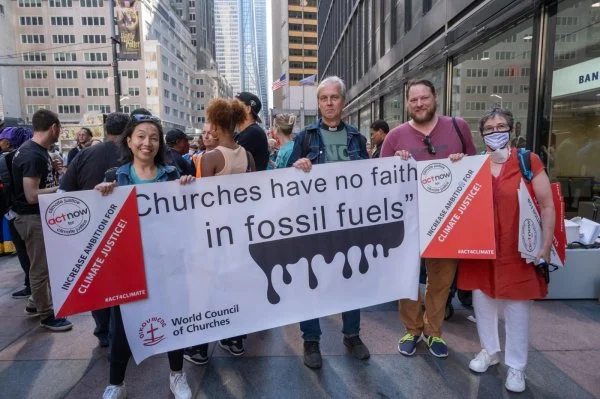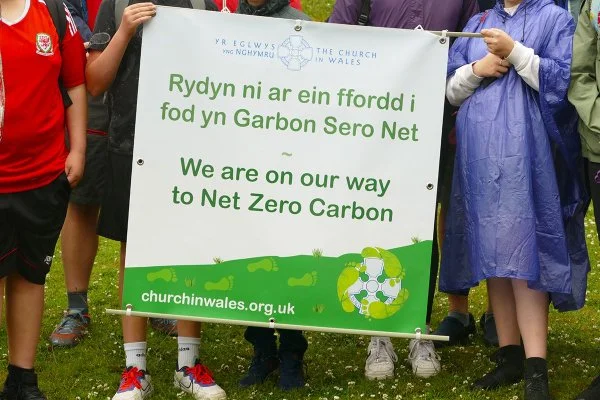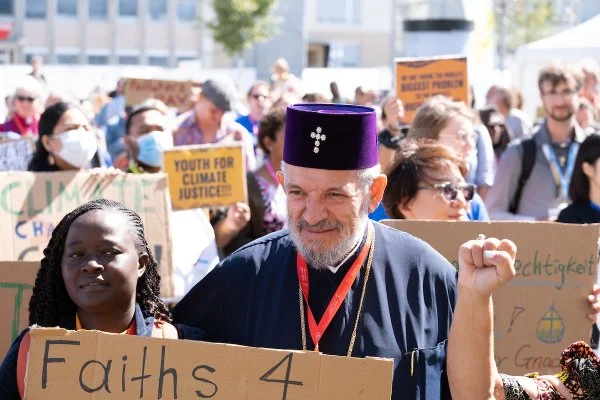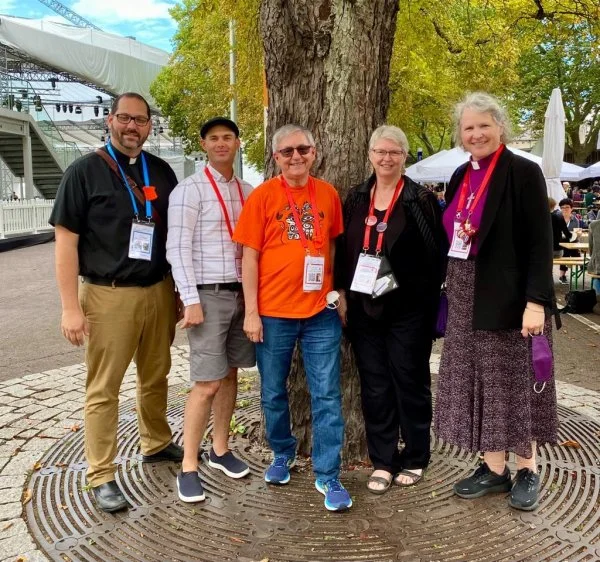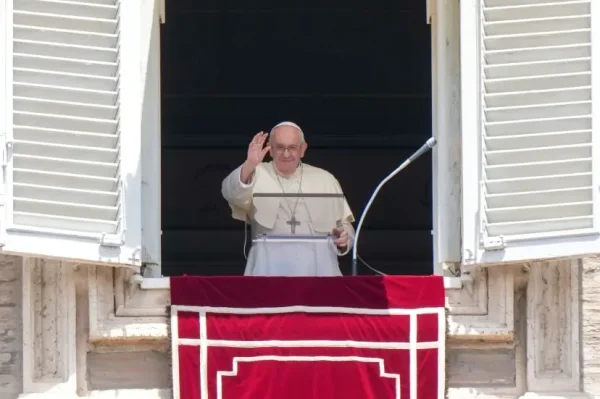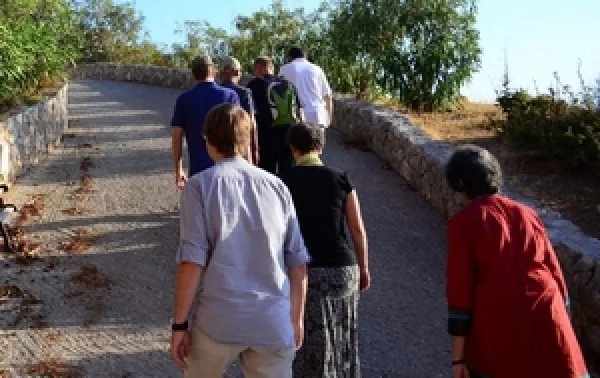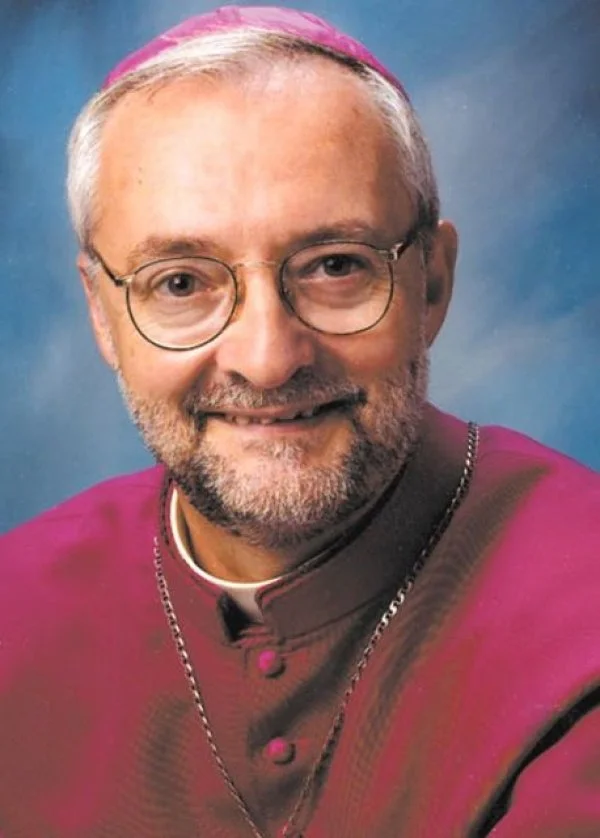- Français
- |
- Booklist
- |
- Week of Prayer
- |
- Links
- Areopagus - a forum for dialogue
- Academic journals
- Acronyms
- Bible tools
- Bibliographies
- Booksellers and publishers
- Churches
- Canadian church headquarters
- Directory of Saskatchewan churches
- Retreat centres
- Saskatchewan church and non-profit agencies
- Ecumenism.net Denominational links
- Anabaptist & Mennonite
- Anglican
- Baptist
- Evangelical
- Independent episcopal
- Lutheran
- Methodist, Wesleyan, and Holiness
- Miscellaneous
- Mormon
- Orthodox (Eastern & Oriental)
- Para-church ministries
- Pentecostal / charismatic
- Presbyterian & Reformed
- Quaker (Society of Friends)
- Roman & Eastern Catholic
- United and uniting
- Documents of Ecumenical Interest
- Ecumenical agencies
- Ecumenical Booklist
- Ecumenical Dialogues
- Glossary
- Human rights
- Inter-religious links
- Justice & peace
- Lectionaries
- Religious news services
- Resource pages
- Search Ecumenism.Net
- |
- Documents
- Ancient & Medieval texts
- Ecumenical Dialogues
- Interreligious
- Anabaptist & Mennonite
- Anglican
- Evangelical
- Lutheran
- Orthodox
- Reformed & Presbyterian
- Roman & Eastern Catholic
- United & Uniting
- Miscellaneous churches
- Canadian Council of Churches (CCC)
- Conference of European Churches (CEC)
- Interchurch Families International Network (IFIN)
- National Council of Churches in Australia (NCCA)
- Lausanne Committee for World Evangelism (LCWE)
- World Council of Churches (WCC)
- Other ecumenical documents
Church traditions
Documents from ecumenical agencies
- |
- Dialogues
- Adventist-Reformed
- African Instituted Churches-Reformed
- Anglican-Lutheran
- Anglican-Orthodox
- Anglican-Reformed
- Anglican-Roman Catholic
- Anglican-United/Uniting
- Baptist-Reformed
- Disciples of Christ-Reformed
- Disciples of Christ-Roman Catholic
- Evangelical-Roman Catholic
- Lutheran-Mennonite
- Lutheran-Mennonite-Roman Catholic
- Lutheran-Reformed
- Lutheran-Roman Catholic
- Mennonite-Reformed
- Mennonite-Roman Catholic
- Methodist-Reformed
- Methodist-Roman Catholic
- Oriental Orthodox-Reformed
- Orthodox-Reformed
- Orthodox-Roman Catholic
- Pentecostal-Reformed
- Prague Consultations
- REC-WARC Consultations
- Roman Catholic-Lutheran-Reformed
- Roman Catholic-Reformed
- Roman Catholic-United Church of Canada
- |
- Quick links
- Canadian Centre for Ecumenism
- Canadian Council of Churches
- Ecumenical Shared Ministries
- Ecumenism in Canada
- Interchurch Families International Network
- International Anglican-Roman Catholic Commission for Unity and Mission
- Kairos: Canadian Ecumenical Justice Initiatives
- North American Academy of Ecumenists
- Prairie Centre for Ecumenism
- Réseau œcuménique justice et paix
- Week of Prayer for Christian Unity
- Women's Interchurch Council of Canada
- World Council of Churches
- |
- Archives
- |
- About us
Archive for tag: climate change
Archive pour tag : climate change
The World Council of Churches (WCC) has released a new resource, Ten Commandments of Climate-Responsible Banking, calling on individuals, churches, and faith-based organizations to align their financial choices with climate justice and the wellbeing of future generations.
The guide stresses that money entrusted to banks is often invested in industries driving the climate crisis and urges believers to use their economic influence to support a transition away from fossil fuels and toward sustainable alternatives.
… Read more » … lire la suite »

 Permanent link: ecumenism.net/?p=14796
Permanent link: ecumenism.net/?p=14796
Categories: WCC News • In this article: climate change, economic ethics, environment, WCC

 Lien permanente : ecumenism.net/?p=14796
Lien permanente : ecumenism.net/?p=14796
Catégorie : WCC News • Dans cet article : climate change, economic ethics, environment, WCC
Pope Francis has published an Apostolic Exhortation building on his 2015 encyclical. We’re not reacting enough, he says, we’re close to breaking point. He criticises climate change deniers, saying that the human origin of global warming is now beyond doubt. And he describes how care for our common home flows from the Christian faith.
“’Praise God’ is the title of this letter. For when human beings claim to take God’s place, they become their own worst enemies.”
That’s how Pope Francis ends his new Apostolic Exhortation, published on the 4th October, the Feast of St Francis of Assisi.
… Read more » … lire la suite »

 Permanent link: ecumenism.net/?p=13927
Permanent link: ecumenism.net/?p=13927
Categories: Documents, Vatican News • In this article: climate change, creation, ecology, environment, Laudate Deum, Laudato Si', Pope Francis

 Lien permanente : ecumenism.net/?p=13927
Lien permanente : ecumenism.net/?p=13927
Catégorie : Documents, Vatican News • Dans cet article : climate change, creation, ecology, environment, Laudate Deum, Laudato Si', Pope Francis
A new collaboration of faith and science looks to equip Catholics with the knowledge and means to turn prayers into actions on the multitude of environmental challenges around the globe, from climate change and pollution, to the rapid loss of species and ecosystems.
“Our Common Home: A Guide to Caring for Our Living Planet,” is a just-released digital and print resource to help Catholic communities respond to Pope Francis’ calls to protect the created world and develop a more sustainable future. It was the result of a joint initiative between the Vatican Dicastery for Promoting Integral Human Development and the Stockholm Environment Institute, a scientific research and policy organization headquartered in the Swedish capital. The idea was first raised in 2020 by the Swedish embassy to the Holy See. The embassy funded the project.
… Read more » … lire la suite »

 Permanent link: ecumenism.net/?p=13337
Permanent link: ecumenism.net/?p=13337
Categories: NCR • In this article: climate change, Dicastery for Promoting Integral Human Development, environment, Laudato Si', Vatican

 Lien permanente : ecumenism.net/?p=13337
Lien permanente : ecumenism.net/?p=13337
Catégorie : NCR • Dans cet article : climate change, Dicastery for Promoting Integral Human Development, environment, Laudato Si', Vatican
From cleaning gutters to overhauling the heating system, a 10-point plan to help churches cut their carbon footprint is launched in time for Creation Sunday (Feb 12).
The guide suggests actions every church can take – starting with small steps and building up towards larger targets. It has been produced as part of the Church in Wales’ commitment to reach net zero carbon by 2030 and will offer churches a chance to show that “actions speak louder than words”.
… Read more » … lire la suite »

 Permanent link: ecumenism.net/?p=13314
Permanent link: ecumenism.net/?p=13314
Categories: News • In this article: climate change, creation, environment

 Lien permanente : ecumenism.net/?p=13314
Lien permanente : ecumenism.net/?p=13314
Catégorie : News • Dans cet article : climate change, creation, environment
Twenty religious congregations have joined together to lobby Ottawa politicians on climate change and social justice.
Since September, the Office of Religious Congregations for Integral Ecology has been quietly meeting with MPs and Senators of all parties, making the case for thoughtful, planned changes to the structure of Canada’s economy.
… Read more » … lire la suite »

 Permanent link: ecumenism.net/?p=12885
Permanent link: ecumenism.net/?p=12885
Categories: Catholic Register • In this article: climate change, ecology, environment, Office of Religious Congregations for Integral Ecology

 Lien permanente : ecumenism.net/?p=12885
Lien permanente : ecumenism.net/?p=12885
Catégorie : Catholic Register • Dans cet article : climate change, ecology, environment, Office of Religious Congregations for Integral Ecology
Money for the damage done isn’t the same thing as preventing even more damage. That simple distinction left Yusra Shafi, Development and Peace-Caritas Canada delegate to the COP27 climate change conference, disappointed as she flew home from Egypt.
… Read more » … lire la suite »

 Permanent link: ecumenism.net/?p=12890
Permanent link: ecumenism.net/?p=12890
Categories: Catholic Register • In this article: climate change, COP27, Development and Peace - Caritas Canada

 Lien permanente : ecumenism.net/?p=12890
Lien permanente : ecumenism.net/?p=12890
Catégorie : Catholic Register • Dans cet article : climate change, COP27, Development and Peace - Caritas Canada
World Council of Churches acting general secretary Rev. Prof. Dr Ioan Sauca joined other faith leaders in signing a collective message calling on world leaders and their representatives at COP27 to make the bold decisions necessary and ensure that there are clear and concrete outcomes from this COP.
… Read more » … lire la suite »

 Permanent link: ecumenism.net/?p=12842
Permanent link: ecumenism.net/?p=12842
Categories: WCC News • In this article: climate change, COP27

 Lien permanente : ecumenism.net/?p=12842
Lien permanente : ecumenism.net/?p=12842
Catégorie : WCC News • Dans cet article : climate change, COP27
“COP27 is a critical occasion for governments to together re-envision, develop, commit to and implement a roadmap towards a fossil fuel-free, post-growth, equitable and sustainable tomorrow,” said Bishop Arnold Temple of the Methodist Church in Sierra Leone, representing the interfaith liaison group, to the High-Level Ministerial Segment of the 27th Session of Conference of the Parties (COP27).
… Read more » … lire la suite »

 Permanent link: ecumenism.net/?p=12853
Permanent link: ecumenism.net/?p=12853
Categories: WCC News • In this article: climate change, COP27, justice, WCC

 Lien permanente : ecumenism.net/?p=12853
Lien permanente : ecumenism.net/?p=12853
Catégorie : WCC News • Dans cet article : climate change, COP27, justice, WCC
As Christians we confess that “The earth is the Lord’s, and everything in it, the world and all who live in it” (Ps 24). We acknowledge our responsibility as stewards and caretakers of God’s unique and abundant Creation of which we human beings are part. And yet we look around our world today, and see that due to our greed and negligence the entire living planet is threatened by accelerating climate change. “The earth dries up and withers, the world languishes and withers…”, “The earth is defiled by its people…” (Isaiah 24:4-5).
… Read more » … lire la suite »

 Permanent link: ecumenism.net/?p=12844
Permanent link: ecumenism.net/?p=12844
Categories: Communiqué, WCC News • In this article: climate change, COP27, statements, WCC

 Lien permanente : ecumenism.net/?p=12844
Lien permanente : ecumenism.net/?p=12844
Catégorie : Communiqué, WCC News • Dans cet article : climate change, COP27, statements, WCC
As the world prepares to gather for the UN Climate Change Conference (COP27) in Egypt from 6 to 18 November 2022, Christian organizations from Africa, Europe, and North America have committed to work together to end the persistent hunger crisis, worsened by climate change.
Leaders from nearly 40 churches and organizations signed the commitment at the end of a two-day convocation in Nairobi on 21 October. The meeting—on climate change and hunger—was organized by the U.S.-based Bread for the World and hosted by the All Africa Conference of Churches.
… Read more » … lire la suite »

 Permanent link: ecumenism.net/?p=12633
Permanent link: ecumenism.net/?p=12633
Categories: WCC News • In this article: Bread for the World, climate change, COP27, hunger

 Lien permanente : ecumenism.net/?p=12633
Lien permanente : ecumenism.net/?p=12633
Catégorie : WCC News • Dans cet article : Bread for the World, climate change, COP27, hunger
The top concern of this year’s World Council of Churches (WCC) Assembly was unquestionably climate change, says Canon Scott Sharman, the Anglican Church of Canada’s animator for ecumenical and interfaith relations.
… Read more » … lire la suite »

 Permanent link: ecumenism.net/?p=12806
Permanent link: ecumenism.net/?p=12806
Categories: Anglican Journal • In this article: Anglican Church of Canada, climate change, WCC Assembly

 Lien permanente : ecumenism.net/?p=12806
Lien permanente : ecumenism.net/?p=12806
Catégorie : Anglican Journal • Dans cet article : Anglican Church of Canada, climate change, WCC Assembly
A statement from the World Council of Churches 11th Assembly, “The Living Planet: seeking a just and sustainable global community,” raises an increasingly urgent voice of concern and demand for action.
“We are all interdependent in God’s whole creation,” notes the statement’s introduction. “We are running out of time.”
We must repent from our continuing human selfishness, the statement urges. “Christ’s love calls us to deep solidarity and a quest for justice for those who have contributed to this emergency the least, yet suffer the most, physically, existentially, and ecologically,” reads the statement.
… Read more » … lire la suite »

 Permanent link: ecumenism.net/?p=12475
Permanent link: ecumenism.net/?p=12475
Categories: Conferences, WCC News • In this article: climate change, ecology, environment, WCC, WCC Assembly

 Lien permanente : ecumenism.net/?p=12475
Lien permanente : ecumenism.net/?p=12475
Catégorie : Conferences, WCC News • Dans cet article : climate change, ecology, environment, WCC, WCC Assembly
“If you’re for climate justice, say ‘AMEN!’” was the chant as young people led a protest marching through the Brunnen exhibition zone at the 11th Assembly of the World Council of Churches in Karlsruhe, Germany on September 2, 2022.
“The protest was organized by people from around the world,” said Helena Funk of Germany, one of the organizers. “They were all different ages, from a variety of confessions.”
… Read more » … lire la suite »

 Permanent link: ecumenism.net/?p=12419
Permanent link: ecumenism.net/?p=12419
Categories: Conferences, WCC News • In this article: climate change, WCC, WCC Assembly

 Lien permanente : ecumenism.net/?p=12419
Lien permanente : ecumenism.net/?p=12419
Catégorie : Conferences, WCC News • Dans cet article : climate change, WCC, WCC Assembly
1st September press conference at the World Council of Churches 11th Assembly drew diverse questions from journalists directed at three panelists who celebrated the earth’s gifts as the Season of Creation opened—but tempered the joy by warning that those gifts will perish if people don’t draw together globally.
Joy Kennedy, moderator of the WCC working group on climate change, offered a very personal perspective on why we should all care about the future. “I’ve been with the WCC climate change working group for many years. I’m a grandmother and I focus on intergenerational justice because climate change is affecting everyone—but more so particularly affecting those who are young and to yet born,” she said. “As a grandmother, I feel we must change our way of living on this planet so we have a survivable future.”
… Read more » … lire la suite »

 Permanent link: ecumenism.net/?p=12390
Permanent link: ecumenism.net/?p=12390
Categories: Conferences, WCC News • In this article: climate change, creation, WCC, WCC Assembly

 Lien permanente : ecumenism.net/?p=12390
Lien permanente : ecumenism.net/?p=12390
Catégorie : Conferences, WCC News • Dans cet article : climate change, creation, WCC, WCC Assembly
In the midst of the Ecumenical Youth Gathering (EYG), a group of young people from around the world have organized a strike for climate justice.
In the midst of the Ecumenical Youth Gathering (EYG), a group of young people from around the world have organized a strike for climate justice.
“It’s very important for me to raise awareness about climate change,” said Subin Tamang, a 25 year-old from Nepal. “I see the effects in my country.”
… Read more » … lire la suite »

 Permanent link: ecumenism.net/?p=12386
Permanent link: ecumenism.net/?p=12386
Categories: Conferences, WCC News • In this article: climate change, WCC, WCC Assembly, youth

 Lien permanente : ecumenism.net/?p=12386
Lien permanente : ecumenism.net/?p=12386
Catégorie : Conferences, WCC News • Dans cet article : climate change, WCC, WCC Assembly, youth
Heat waves, rivers drying up, wild fires, floods, disappearing glaciers… Recent events in our own context and around the world leave no doubt that the daily life of our communities, our global partners, and the mission and ministries of our churches will increasingly be impacted by climate-related disasters, the trauma of those directly affected, and the fear and despair experienced by so many in the face of our destruction of creation.
… Read more » … lire la suite »

 Permanent link: ecumenism.net/?p=13627
Permanent link: ecumenism.net/?p=13627
Categories: One Body, Opinion • In this article: climate change, environment, Laudato Si'

 Lien permanente : ecumenism.net/?p=13627
Lien permanente : ecumenism.net/?p=13627
Catégorie : One Body, Opinion • Dans cet article : climate change, environment, Laudato Si'
The care of the environment and the fight against climate change is not a lofty goal for humanity but a moral imperative, Pope Francis said.
The worsening climate crisis can no longer be ignored, and it is up to all human beings, who were entrusted by God as “stewards of his gift of his creation,” to act, the pope said in a message July 13 to participants at a Vatican conference on climate change.
“Care for our common home, even apart from considerations of the effects of climate change, is not simply a utilitarian endeavour but a moral obligation for all men and women as children of God,” the pope said. “With this in mind, each of us must ask: ‘What kind of world do we want for ourselves and for those who will come after us?’”
The July 13-14 conference, titled “Resilience of People and Ecosystems under Climate Stress,” was sponsored by the Pontifical Academy of Sciences.
According to the academy’s website, the conference aimed to “bring researchers, policymakers and faith leaders together to understand the scientific and societal challenges of climate change and develop solutions for enabling resilient people and resilient ecosystems.”
… Read more » … lire la suite »

 Permanent link: ecumenism.net/?p=12103
Permanent link: ecumenism.net/?p=12103
Categories: CNS • In this article: climate change, Pope Francis

 Lien permanente : ecumenism.net/?p=12103
Lien permanente : ecumenism.net/?p=12103
Catégorie : CNS • Dans cet article : climate change, Pope Francis
Global religious leaders and leading scientists issued a joint statement on 4 October calling on the international community to raise their ambition and step up their climate action ahead of COP26.
Almost 40 faith leaders signed the joint appeal, which was presented by Pope Francis.
Signatories included World Council of Churches acting general secretary Rev. Prof. Dr Ioan Sauca, along with representatives from across the Christian denominations, Sunni and Shi’a Islam, Judaism, Hinduism, Sikhism, Buddhism, Confucianism, Taoism, Zoroastrianism and Jainism.
The appeal calls for the world to achieve net-zero carbon emissions as soon as possible, and to limit the global average temperature rise to 1.5 degrees above pre-industrial levels.
… Read more » … lire la suite »

 Permanent link: ecumenism.net/?p=10908
Permanent link: ecumenism.net/?p=10908
Categories: Documents, Vatican News, WCC News • In this article: climate change, COP26, environment, interfaith statements, Pope Francis, WCC

 Lien permanente : ecumenism.net/?p=10908
Lien permanente : ecumenism.net/?p=10908
Catégorie : Documents, Vatican News, WCC News • Dans cet article : climate change, COP26, environment, interfaith statements, Pope Francis, WCC
The Roman Catholic‒United Church of Canada Dialogue has released a report on climate change entitled The Hope within Us. Since October 2012, the Roman Catholic‒United Church of Canada Dialogue has met eight times to explore our churches’ responses to the ecological crisis, with particular attention to climate change. The report explores the spiritual resources of our common tradition for addressing climate change and working for ecological justice. While not turning away from the real dangers of the ecological crises, the dialogue provides a vision of hope, based on our common Christian faith, that a new relationship between humanity and creation is possible.
… Read more » … lire la suite »

 Permanent link: ecumenism.net/?p=10295
Permanent link: ecumenism.net/?p=10295
Categories: Dialogue • In this article: Catholic, CCCB, climate change, United Church of Canada

 Lien permanente : ecumenism.net/?p=10295
Lien permanente : ecumenism.net/?p=10295
Catégorie : Dialogue • Dans cet article : Catholic, CCCB, climate change, United Church of Canada
Le Dialogue de l’Église catholique romaine et de l’Église Unie a publié un rapport sur le changement climatique intitulé l’Espérance en nous. Depuis octobre 2012, le Dialogue de l’Église catholique romaine et de l’Église Unie du Canada s’est réuni huit fois pour examiner les réponses de nos Églises à la crise écologique, en portant une attention particulière au changement climatique. Le rapport explore les ressources spirituelles de notre tradition commune pour faire face au changement climatique et travailler pour la justice écologique. Sans fermer les yeux sur les dangers réels des crises écologiques, le dialogue offre une vision d’ espérance fondée sur notre foi chrétienne commune, voulant qu’une nouvelle relation entre l’humanité et la création soit possible.
… Read more » … lire la suite »

 Permanent link: ecumenism.net/?p=10297
Permanent link: ecumenism.net/?p=10297
Categories: Dialogue • In this article: Catholic, CCCB, climate change, dialogue, United Church of Canada

 Lien permanente : ecumenism.net/?p=10297
Lien permanente : ecumenism.net/?p=10297
Catégorie : Dialogue • Dans cet article : Catholic, CCCB, climate change, dialogue, United Church of Canada
In conjunction with the United Nations Sustainable Development summit, currently underway, Canadian faith leaders are calling for climate justice in Canada—for all Canadians, and for the world. Together they have endorsed the statement “On Promoting Climate Justice and Ending Poverty in Canada.”
“On the same day when Pope Francis spoke at the UN General Assembly, asking for renewed ambition from wealthy countries in efforts to reach a solid international commitment to lower greenhouse gas emissions, this statement echoes the need for Canada to act,” said Joe Gunn, Executive Director of Citizens for Public Justice (CPJ).
“In midst of a federal election campaign, climate challenges, ending poverty and responding with justice to Indigenous rights cannot be dismissed. These religious signatories are right to call us to greater respect for the common good.”
CPJ, an affiliate member of the CCC, helped to draft the declaration. In 2011, the “Canadian Interfaith Call for Leadership and Action on Climate Change” was released by the CCC.
… Read more » … lire la suite »

 Permanent link: ecumenism.net/?p=8750
Permanent link: ecumenism.net/?p=8750
Categories: Documents, News • In this article: Canadian Council of Churches, Citizens for Public Justice, climate change, interfaith, statements

 Lien permanente : ecumenism.net/?p=8750
Lien permanente : ecumenism.net/?p=8750
Catégorie : Documents, News • Dans cet article : Canadian Council of Churches, Citizens for Public Justice, climate change, interfaith, statements
Joined in prayer, Christian churches around the world will again observe the ecumenical “Time for Creation” (1 September to 4 October), this year bolstered by Pope Francis’s recent proclamation of 1 September as the “World Day of Prayer for the Care of Creation.”
The movement toward a yearly commemoration of the biblical mandate to exercise stewardship over God’s creation (Genesis 1:26-28) first took shape following a 1 September 1989 encyclical from the late Ecumenical Patriarch Dimitrios I of Constantinople in which he extended an invitation to “the entire Christian world to offer together with the Mother Church of Christ, the Ecumenical Patriarchate, every year on this date prayers and supplications to the Maker of all, both as thanksgiving for the great gift of creation and as petitions for its protection and salvation.”
The pastoral letter from Dimitrios continued, “At the same time we paternally urge, on the one hand, the faithful in the world to admonish themselves and their children to respect and protect the natural environment and, on the other hand, those who are entrusted with the responsibility of governing the nations to act without delay, taking all necessary measures for the protection and preservation of natural creation.”
The World Council of Churches (WCC) and related ecumenical bodies have adopted a “Time for Creation” as an emphasis in the church year, running from the beginning of the Eastern Orthodox liturgical year on 1 September to the feast-day of Saint Francis of Assisi observed by the Roman Catholic Church on 4 October. This initiative arose directly from the Ecumenical Patriarch’s 1989 encyclical.
… Read more » … lire la suite »

 Permanent link: ecumenism.net/?p=8658
Permanent link: ecumenism.net/?p=8658
Categories: WCC News • In this article: climate change, creation, ecology, environment, prayer, WCC

 Lien permanente : ecumenism.net/?p=8658
Lien permanente : ecumenism.net/?p=8658
Catégorie : WCC News • Dans cet article : climate change, creation, ecology, environment, prayer, WCC
On Thursday, Pope Francis issued a powerful and timely encyclical on the environment, urging humanity to come to its senses and cease its reckless onslaught against God’s creation. He addressed this letter not only to his fellow Catholics, but to all people of the world, asking people of different religious traditions to unite in common purpose to save our planet.
As religious figures, we too accept the overwhelming scientific consensus that global warming comes from human activity, as we see no conflict between faith and reason.
And, coming from the three great Abrahamic faiths – Judaism, Christianity and Islam – we stand together on the need to be good stewards of the earth. All of our traditions affirm the inherent goodness of all creation, and the binding obligation on human beings to protect our common home, the planet that sustains us. The Hebrew Scriptures state clearly that the Earth belongs to God alone, and that we are merely sojourners – we do not have ownership on a permanent basis: the fruits of the earth belong to all, including the poor. This ancient teaching is affirmed by both Christianity and Islam. Christians also view the world through a sacramental lenses, believing that the redemption of Christ has in turn redeemed all of creation. And Islam can be thought of as a religion of nature, with 750 verses in the holy Qur’an speaking about our responsibility to the environment and our relationship with all creatures. Islam too recognizes that everything in the heavens and the earth belong to God, and that we are mere trustees and vice-regents.
… Read more » … lire la suite »

 Permanent link: ecumenism.net/?p=8597
Permanent link: ecumenism.net/?p=8597
Categories: Opinion • In this article: climate change, ecology, encyclicals, environment, interfaith, Pope Francis

 Lien permanente : ecumenism.net/?p=8597
Lien permanente : ecumenism.net/?p=8597
Catégorie : Opinion • Dans cet article : climate change, ecology, encyclicals, environment, interfaith, Pope Francis
Thousands of people are planning to embark on a pilgrimage of climate justice – either on foot or on bicycles – in many parts of the world. These faithful pilgrims, rooted in their religious beliefs, want to express solidarity with those affected by climate change – urging world leaders to produce a legally binding and universal agreement on the climate at the upcoming United Nations Climate Change Conference (COP21) in Paris. These pilgrims, mostly from Europe and Africa, are mobilized by Christian organizations representing members of the World Council of Churches (WCC). Some will end their journey in Paris, uniting their voices with other faith actors at the COP 21 to be held from 30 November to 11 December 2015. “Paris is a milestone in our pilgrimage of climate justice,” said Dr Guillermo Kerber, WCC programme executive for Care for Creation and Climate Justice. “Yet Paris is not a destination. As people of faith, expected to offer a moral compass to climate dialogue, we need to strategize for 2016 and beyond,” he said.
… Read more » … lire la suite »

 Permanent link: ecumenism.net/?p=7956
Permanent link: ecumenism.net/?p=7956
Categories: WCC News • In this article: climate change, justice, United Nations, WCC

 Lien permanente : ecumenism.net/?p=7956
Lien permanente : ecumenism.net/?p=7956
Catégorie : WCC News • Dans cet article : climate change, justice, United Nations, WCC
As hundreds of thousands of people flooded through the streets of New York City on 21 September in a march for action on climate change, 30 faith leaders representing nine religions signed their names to a statement calling for concrete actions to curb carbon emissions. The document was the centrepiece of an interfaith conference jointly hosted by the World Council of Churches (WCC), a body that includes 345 churches representing about 560 million Christians worldwide, and Religions for Peace, an interfaith coalition with members in more than 70 countries. Signatories hailed from 21 countries on six continents. “When in January I listened to the general secretary of the United Nations, Ban Ki Moon, calling the world’s heads of state for a summit on climate change, I thought we also have to get together as leaders of faith communities to offer our contributions,” said Rev. Dr Olav Fkyse Tveit, the WCC general secretary. Large changes require “deep and strong conviction” which, he said, can be found in the “beliefs, rituals, symbols, sacred texts and prayers of faith [that] give meaning and direction for a large portion of the world’s population.”
… Read more » … lire la suite »

 Permanent link: ecumenism.net/?p=7824
Permanent link: ecumenism.net/?p=7824
Categories: WCC News • In this article: climate change, interfaith, WCC

 Lien permanente : ecumenism.net/?p=7824
Lien permanente : ecumenism.net/?p=7824
Catégorie : WCC News • Dans cet article : climate change, interfaith, WCC
We are united as Christian leaders in our concern for the well-being of our neighbours and of God’s good creation that provides life and livelihood for all God’s creatures. Daily we see and hear the evidence of a rapidly changing climate. Glaciers are disappearing, the polar ice cap is melting, and sea levels are rising. Incidents of pollution- created dead zones in seas and the ocean and toxic algae growth in water supplies are occurring with greater frequency. Most disturbingly, the concentration of carbon dioxide in the atmosphere is rising at an unprecedented rate. At the same time we also witness in too many instances how the earth’s natural beauty, a sign of God’s wonderful creativity, has been defiled by pollutants and waste.
Many have reacted to these changes with grief and anger. In their outrage some have understandably focused on the neglect and carelessness, both in private industry and in government regulation, that have contributed to these changes. However, an honest accounting requires a recognition that we all participate both as consumers and investors in economies that make intensive and insistent demands for energy. In addition, as citizens we have chosen to support or acquiesce in policies that shift the burdens of climate change to communities that are most vulnerable to its effects. People who are already challenged by poverty and by dislocation resulting from civil war or famine have limited resources for adapting to climate change’s effects.
… Read more » … lire la suite »

 Permanent link: ecumenism.net/?p=7818
Permanent link: ecumenism.net/?p=7818
Categories: Anglican Journal, Communiqué • In this article: Anglican, climate change, Lutheran, statements

 Lien permanente : ecumenism.net/?p=7818
Lien permanente : ecumenism.net/?p=7818
Catégorie : Anglican Journal, Communiqué • Dans cet article : Anglican, climate change, Lutheran, statements
Faith communities throughout Canada believe they have a moral responsibility to address global warming. As a result, religious leaders have prepared a Canadian Interfaith Call for Leadership and Action on Climate Change. This is among the first times that such a broad interfaith effort at a faith leaders’ letter has been undertaken in Canada.
… Read more » … lire la suite »

 Permanent link: ecumenism.net/?p=1820
Permanent link: ecumenism.net/?p=1820
Categories: Documents, News • In this article: Canadian Council of Churches, Citizens for Public Justice, climate change, ecology, environment, KAIROS Canada

 Lien permanente : ecumenism.net/?p=1820
Lien permanente : ecumenism.net/?p=1820
Catégorie : Documents, News • Dans cet article : Canadian Council of Churches, Citizens for Public Justice, climate change, ecology, environment, KAIROS Canada
The accepted axiom is, as the climate changes so the world, too, will change in dramatic and sometimes undesirable ways. What does this often rapid change mean to Christians whose faith is intertwined with the glory and beauty of God’s creation, but challenged when that creation is corrupted and irreversibly altered?
… Read more » … lire la suite »

 Permanent link: ecumenism.net/?p=1813
Permanent link: ecumenism.net/?p=1813
Categories: Opinion, WCC News • In this article: climate change, ecology, environment

 Lien permanente : ecumenism.net/?p=1813
Lien permanente : ecumenism.net/?p=1813
Catégorie : Opinion, WCC News • Dans cet article : climate change, ecology, environment
Beyond the traditional categorization of climate change as an environmental issue, it is clearly also a development issue; a poverty reduction, food security, economics, health, human rights, governance and equality issue. It is a Millennium Development Goal issue. (UN Millennium Campaign)
… continued
… Read more » … lire la suite »

 Permanent link: ecumenism.net/?p=602
Permanent link: ecumenism.net/?p=602
Categories: News • In this article: Canada, climate change, development, ecology, environment, KAIROS Canada, poverty

 Lien permanente : ecumenism.net/?p=602
Lien permanente : ecumenism.net/?p=602
Catégorie : News • Dans cet article : Canada, climate change, development, ecology, environment, KAIROS Canada, poverty
In a pastoral letter to the faithful in his diocese, Roman Catholic Bishop Luc Bouchard of St. Paul in Alberta, Canada decried that “the integrity of creation in the Athabasca Oil Sands” – the largest reservoir of crude bitumen in the world and the largest of three major oil sands deposits in Alberta – “is clearly being sacrificed for economic gain.”
… continued
… Read more » … lire la suite »

 Permanent link: ecumenism.net/?p=557
Permanent link: ecumenism.net/?p=557
Categories: Documents, News • In this article: bishops, Canada, Catholic, climate change, ecology, environment

 Lien permanente : ecumenism.net/?p=557
Lien permanente : ecumenism.net/?p=557
Catégorie : Documents, News • Dans cet article : bishops, Canada, Catholic, climate change, ecology, environment
Prendre un Congé Sabbatique de Carbone
Notre dépendance à l`égard de pétrole tue des personnes et la planète… parfois à petit feu par la dégradation progressive de l’air que nous respirons et des écosystèmes dont nous dépendons toutes et tous, et parfois rapidement à la suite des nombreuses violations des droits humains et des conflits liés au contrôle et à l’usage de l’énergie fossile. Y-a-t-il des alternatives?
Oui! KAIROS – initiatives œcuméniques canadiennes pour la justice pense qu’il est temps que nous réexaminions, à titre individuel et comme societé, notre dépendance à l’égard des combustibles fossiles. Joignez-vous à notre campagne d’action Repenser l’énergie : Il Est Temps de Prendre un Congé Sabbatique de Carbone et servez-vous de notre site Internet pour découvrir comment il vous est possible de changer vous-même, de changer votre milieu et d’aider à changer le monde en repensant tous et toutes ensemble de l’énergie!
… Read more » … lire la suite »

 Permanent link: ecumenism.net/?p=440
Permanent link: ecumenism.net/?p=440
Categories: News • In this article: climate change, ecology, environment, KAIROS Canada

 Lien permanente : ecumenism.net/?p=440
Lien permanente : ecumenism.net/?p=440
Catégorie : News • Dans cet article : climate change, ecology, environment, KAIROS Canada
March 29 is a Carbon Sabbath
KAIROS wants you to turn off your lights for an hour at 8 pm on Saturday, March 29!
Why? Because our use of fossil fuels -symbolized here by a light bulb- is contributing to global climate change. In 2007, the people of Sydney, Australia, decided that they could send a powerful message for change by turning off all their lights at the same time. More than 2 million citizens and businesses did so. Now, the World Wildlife Fund is taking Sydney’s history-making moment global by encouraging people, businesses, and communities all over the world to turn off their lights and demand action on climate change.
KAIROS asks you, your church, and your community to join in this global effort as part of your commitment to the Re-Energize: Time For A Carbon Sabbath campaign. Use this time to reflect on your use of fossil fuels and their connections not just to climate change but to human rights and conflict as well. Build community around these issues. Advocate with local and federal governments to change their policies and practices related to fossil fuels.
… Read more » … lire la suite »

 Permanent link: ecumenism.net/?p=439
Permanent link: ecumenism.net/?p=439
Categories: Resources • In this article: Canada, climate change, ecology, environment, events

 Lien permanente : ecumenism.net/?p=439
Lien permanente : ecumenism.net/?p=439
Catégorie : Resources • Dans cet article : Canada, climate change, ecology, environment, events
Les Églises du Canada ont depuis des années fait du soin de la Terre une dimension intégrale de leur travail de promotion de la justice. Il n’est pas de plus grande menace pesant sur notre avenir commun que la destruction des écosystèmes dont dépend toute vie. Prendre soin de la création est un engagement spirituel envers Dieu que notre foi ne rend pas optionnel.
La Loi sur la qualité de l’air qu’annonçait le gouvernement canadien le 19 octobre, en faisant la pièce maîtresse de son soi-disant Plan vert « fait au Canada », manque de vision et de courage. Elle ne peut pas s’attaquer avec force au problème des changements climatiques.
… Read more » … lire la suite »

 Permanent link: ecumenism.net/?p=271
Permanent link: ecumenism.net/?p=271
Categories: News • In this article: Canada, climate change, ecology, environment, KAIROS Canada

 Lien permanente : ecumenism.net/?p=271
Lien permanente : ecumenism.net/?p=271
Catégorie : News • Dans cet article : Canada, climate change, ecology, environment, KAIROS Canada
For years, the Canadian churches have made care for the Earth an integral aspect of their justice work. There is no greater threat to our collective future than the destruction of the ecosystems upon which all life is dependent. Caring for Creation is a spiritual commitment to God that is not optional in our faith.
The Canadian government’s Clean Air Act announced on October 19 as the centerpiece of its so-called “Made in Canada” Green Plan for Canada lacks the vision and courage to seriously tackle climate change.
… Read more » … lire la suite »

 Permanent link: ecumenism.net/?p=270
Permanent link: ecumenism.net/?p=270
Categories: News • In this article: Canada, climate change, ecology, environment, KAIROS Canada, statements

 Lien permanente : ecumenism.net/?p=270
Lien permanente : ecumenism.net/?p=270
Catégorie : News • Dans cet article : Canada, climate change, ecology, environment, KAIROS Canada, statements
We are gathered here today in the spirit of peace for the good of all human beings and for the care of creation. At this moment in history, at the beginning of the third millennium, we are saddened to see the daily suffering of a great number of people from violence, starvation, poverty and disease. We are also concerned about the negative consequences for humanity and for all creation resulting from the degradation of some basic natural resources such as water, air and land, brought about by an economic and technological progress which does not recognize and take into account its limits.
… Read more » … lire la suite »

 Permanent link: ecumenism.net/?p=3473
Permanent link: ecumenism.net/?p=3473
Categories: Documents • In this article: Bartholomew I, Catholic, Christian unity, climate change, dialogue, ecology, Ecumenical Patriarch of Constantinople, ecumenism, environment, Orthodox, patriarch, Pope John Paul II, science, statements

 Lien permanente : ecumenism.net/?p=3473
Lien permanente : ecumenism.net/?p=3473
Catégorie : Documents • Dans cet article : Bartholomew I, Catholic, Christian unity, climate change, dialogue, ecology, Ecumenical Patriarch of Constantinople, ecumenism, environment, Orthodox, patriarch, Pope John Paul II, science, statements


